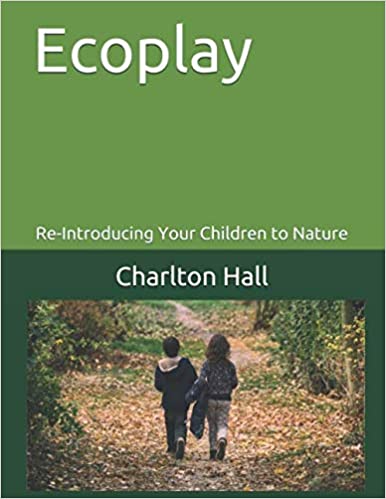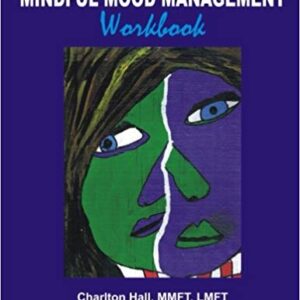THIS IS THE PDF VERSION
CLICK HERE TO PURCHASE THE PAPERBACK VERSION
About Ecoplay
Richard Louv’s groundbreaking book Last Child in the Woods coined the term Nature Deficit Disorder. According to Louv, our children are spending less time outside in the natural world and more time inside watching television and playing video games. Louv says that this lack of contact with nature has created a wide range of behavioral problems.
“It’s a problem because kids who don’t get nature-time seem more prone to anxiety, depression and attention-deficit problems,” says Louv, who suggests that going outside and being in the quiet and calm can help greatly.
Ecoplay is one way to help children to reconnect with nature and to discover that quiet and calm within themselves.
What is Ecoplay?
Ecoplay is an 8-week filial play program that trains parents to be ecoplay ‘therapists’ for their own children. It is also a theoretical framework and approach to therapy that allows children to express themselves in play, their natural language. Ecoplay allows this expressive play to happen in healthy natural environments.
Ecoplay therapy is founded on four core principles: Mindfulness, ecotherapy, family resilience and play therapy.
Mindfulness
Mindfulness, at its core, simply means paying attention to the present moment. Children live in the “now” of existence when at play. The tools and skills of mindfulness allow children to let go of the past and the future and to focus on their immediate experience.
Ecotherapy
Ecotherapy is simply therapy that takes place outdoors. Play in natural environments has been linked with a wide variety of positive outcomes, including better focus and concentration, a greater sense of self-efficacy and well-being, and enhanced learning and retention.
Family Resilience
All families go through crises from time to time. While a crisis can bring some families closer together, it can also tear some families apart. What makes the difference in those families that are able to weather a crisis are family resilience factors.
Multiple studies have identified these factors of family resilience. These factors have been condensed into the 7Cs of Ecoplay. These seven family resilience factors in Ecoplay are: Compassion, communication, control, choices, consequences, consistency and confidence. Ecoplay covers what these factors mean to you and your family and how to implement them as strengths.
Play Therapy
Children, especially children under 12, lack the vocabulary to discuss complex emotional issues; but they are able to express their emotions during play. Play is a child’s natural emotional language, and play therapy allows children to express themselves in ways that make sense to them.
Ecoplay uses all of the approaches listed above to help your child to live a fuller, richer and more meaningful existence.
Ecoplay’s Approach to Rules and Discipline
Problems often arise when parents use an authoritarian approach to parenting and discipline. This approach is a “my way or the highway” style of parenting in which there are strict rules and strict consequences for disobedience. It is a punishment-based approach that focuses on taking away things for misbehavior or otherwise punishing inappropriate behaviors. Authoritarian Parenting tends to use a black-and-white approach. Parents who use this method often believe that if they do not punish a child for misbehavior, that the child will “run wild” or “grow up to be a spoiled brat.”
Such a parenting style generally believes that the only alternative to Authoritarian Parenting is what has been called Permissive Parenting. In Permissive Parenting, there are few rules and limits, and the children are basically allowed to raise themselves with little guidance or instruction. As you would expect, such a parenting style creates children who have little respect for authority and many problem behaviors.
The irony is that similar outcomes are also associated with Authoritarian Parenting. That is to say, that with both Authoritarian Parenting and Permissive Parenting, children tend to have far more behavioral problems.
Children from families where Authoritarian Parenting is the norm may be relatively well-behaved and more compliant with authority, but they also tend to be less resourceful, have poorer social skills, less creativity, fewer problem-solving skills, less self-control, and lower self-esteem. Children from Permissive Parenting homes tend to have similar outcomes.
There is, however, a third option: Authoritative Parenting. Authoritative Parenting has firm rules, but the reasons for these rules are explained to the child with warmth and compassion. There are firm consequences for violation of the rules, but there are also consistent rewards for following the rules. Authoritative parents are very responsive and nurturing. They encourage their children to ask questions, and they explain the rationale behind the rules. Authoritative parents are also less likely to control children through blaming, shaming, guilt-tripping, or withdrawing love and approval for violation of the rules. Compared with children from Authoritarian or Permissive households, children from Authoritative homes tend to have better compliance with the rules, greater self-esteem, and greater self-control. They may also achieve more in academic settings.
Because of the large amount of evidence linking Authoritative Parenting to positive overall outcomes, Ecoplay Therapy uses the Authoritative Parenting model.
Core Principles of Ecoplay
Ecoplay has several core principles that make it a unique approach to wellbeing. Some of these principles are:
Mindfulness-based system
Ecoplay is a mindfulness-based system. Mindfulness simply means paying attention to the present moment. Think about the last time you were stressed out. Did the stress have anything to do with something that happened in the past? Did it have anything to do with something that may or may not happen in the future? How much of the stress had to do with what is going on right now, in this present moment, as you are reading this?
Mental health professionals have studied mindfulness in recent years as a technique for reducing stress and teaching relaxation. Mindfulness, in essence, simply consists of focusing on your direct experiences in the present moment. The point is to simply pay attention to the moment, without assumptions, evaluations or judgments.
Ecotherapy-based system
Ecotherapy suggests that there is a synergistic relation between planetary and personal well being; that the needs of the one are relevant to the other. In short, what we do to the environment, we do to ourselves.
Ecotherapy is the practical application of this knowledge. In Ecotherapy, nature is the ‘therapist.’ In practicing the techniques of Ecotherapy, we allow the healing power of nature to work its magic on us.
Experiences in and with nature, or ‘natural’ experiences, are ways in which we consciously choose to allow nature to work its healing magic on us.
Authoritative approach
Authoritative Parenting is a reward-based parenting style. As conceptualized in Ecoplay, Authoritative Parenting rewards appropriate behaviors instead of punishing inappropriate behaviors. Authoritative parents are very responsive and nurturing. They encourage their children to ask questions, and they explain the rationale behind the rules. Authoritative parents are also less likely to control children through blaming, shaming, guilt-tripping, or withdrawing love and approval for violation of the rules.
Resilience-based system
Ecoplay relies on the 7Cs of family resilience to help promote healing and wholeness for your family. The 7Cs are:
Compassion: We can talk about problems all day, but until we start talking about solutions, nothing gets solved. Ecoplay focuses on family strengths and connections. It is a solution-focused approach that looks more at what’s working than what’s not working.
Communication: Ecoplay is based on mindful communication strategies. In mindful communication we learn to be in the moment with each other, without past concerns or future worries. In the present moment we are able to truly hear and validate each other. From here healing can happen.
Control: Ecoplay takes the stance that there is no such thing as a ‘wrong’ feeling. What may be ‘wrong,’ or unproductive, is the way we choose to respond to our feelings. With Ecoplay we learn to respond in positive ways to feelings so that our interactions do not become problematic.
Choices: Ultimately, maturing into adulthood means learning to make good choices. The only way to learn to make good choices is to have the opportunity to practice choice-making. Ecoplay uses the power of choice-giving and choice-making to allow your children to gain confidence on their journey to adulthood.
Consequences: Every choice has a consequence. By skillful used of consequences we teach our children self-control and personal responsibility. By linking consequences to choices we teach our children to think for themselves.
Consistency: Consistent consequences for consistent choices helps your child to learn self-confidence in a safe, predictable environment. While maintaining consistency can be hard, parents who are able to achieve a level of consistency with their children will reap the rewards.
Confidence: Everyone has two images of self: The person they see themselves as and the person they’d like to be. Ecoplay at its core is concerned with helping children and family members express the person they were meant to be. Doing so allows you to live a life of confidence.
Children are doing the best that they can
It is a core principle of the Ecoplay system that disobedience does not mean defiance. When a child is having a tantrum it is not because the child wishes to defy parental authority. When a child is being disobedient it is a sign of emotional distress. Ecoplay offers parents a method and a way to interpret disobedience in a new way. This re-interpretation allows parents to get to the root of the disobedience in appropriate ways. The assumption here is that when a child feels heard and understood, that child is more willing to comply with the rules, even if the child doesn’t agree with or like the rules.
Parents are doing the best that they can
Parents are the best experts on their own children. Ecoplay assumes that parents are doing the best that they can, and that with guidance they can help their children achieve their goals. Ecoplay teaches parents to be their children’s “therapist” by helping them to learn self-control through play activities and modeling appropriate behaviors.





Reviews
There are no reviews yet.